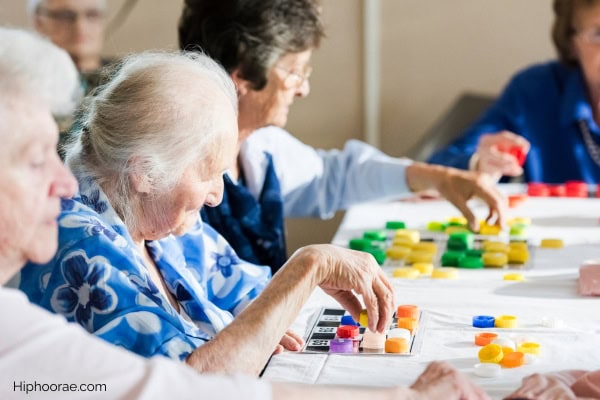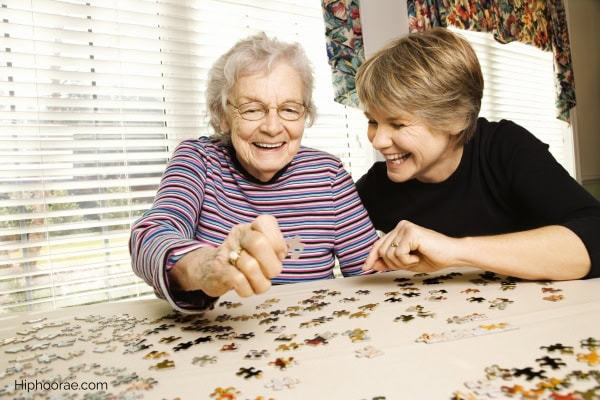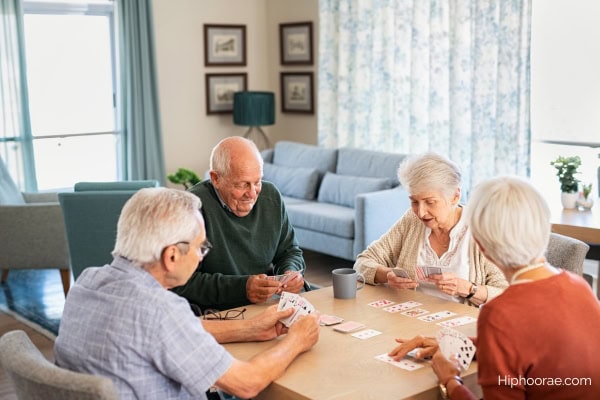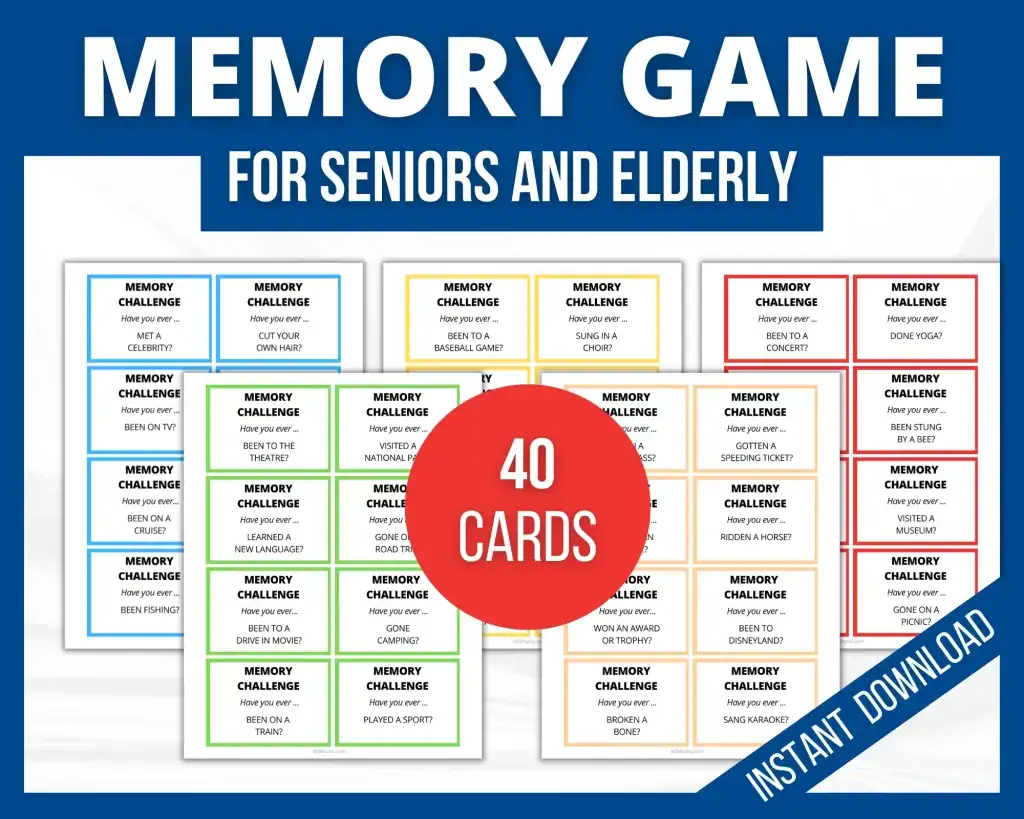Games For Seniors with Dementia
Games for Seniors with Dementia: Fun, Engaging, and Meaningful Activities
Spending quality time with a loved one who has dementia can be both rewarding and challenging. Watching memory fade and seeing the world become a bit more confusing for them is heartbreaking but there are so many ways we can spark joy, encourage connection, and support cognitive function. One of the simplest, most effective ways to do this is through games.
Games aren’t just for kids they can bring laughter, exercise, and mental stimulation to seniors too. When chosen thoughtfully, they help reduce feelings of isolation, improve mood, and give both seniors and caregivers moments of connection that are pure magic.
Here’s a collection of games and activities that are especially suited for seniors with dementia. They’re simple, gentle, and flexible perfect for parties, get-togethers, or quiet afternoons at home.
1. Memory Matching Games
Memory games are classic for a reason. They stimulate the brain while also providing small victories that can boost confidence.
How to play:
- Use a simple deck of picture cards or a custom memory game with familiar images, such as family photos, animals, or favorite foods.
- Place the cards face down and take turns flipping two at a time. If the images match, keep the pair.
- Celebrate small wins with lots of encouragement it’s about fun, not competition.
Tips:
- Keep the number of cards manageable. Too many can overwhelm and frustrate.
- Use cards with high-contrast colors and clear images to make it easier to see.
- You can create themed sets, like holiday cards or nature cards, to make it feel fresh each time.
This game not only encourages memory recall but also gives seniors a sense of achievement when they find a match.
2. Sensory Bingo
Bingo isn’t just for big halls and loud crowds it can be adapted beautifully for seniors with dementia, especially when you use sensory elements.
How to play:
- Create bingo cards using images, textures, or scents instead of numbers. For example, a card could have a picture of a rose, a textured piece of fabric, or even a scented sticker.
- Call out the item, or bring the object to them and let them identify it.
- First to complete a row gets a small prize or simply a cheer.
Tips:
- Focus on participation, not perfection. Even a partial row is a win.
- Encourage conversation about each item it’s a wonderful way to reminisce and share stories.
- Switch themes regularly food, animals, household items to keep it interesting.
Sensory bingo engages multiple senses, which can spark recognition and recall even if memory is fading.

3. Simple Word Games
Language-based games can gently stimulate thinking and communication skills. These games should be simple, with lots of support and encouragement.
Ideas:
- Name That Object: Show a familiar object and ask, “What is this?” Keep it lighthearted and supportive.
- Rhyme Time: Say a word and encourage the senior to think of words that rhyme. Don’t worry if they get stuck offer gentle hints.
- Category Game: Pick a category like fruits or animals and take turns naming items in that group.
Tips:
- Keep sessions short 10 to 15 minutes is plenty.
- Always praise effort, not correctness. The goal is engagement, not perfect answers.
- Use visual cues if needed, like pictures or physical objects, to jog memory.
These games can help seniors feel competent and included, which is especially important for emotional well-being.
4. Music and Movement Games
Music has a magical way of unlocking memories. Pairing music with movement whether clapping, tapping, or gentle dancing can improve mood, memory, and even balance.
How to play:
- Play familiar tunes from their youth or favorite genres.
- Encourage clapping, snapping, or tapping to the beat.
- You can make it a game by pausing the music and asking them to continue the rhythm or guess the next song.
Tips:
- Keep movements simple and adaptable to seated positions if mobility is limited.
- Use songs that are familiar they can trigger memories and spark conversations.
- Encourage participation without pressure sometimes just tapping along is enough.
This activity combines physical exercise, sensory stimulation, and cognitive engagement in a joyful, low-stress way.

5. Puzzles and Sorting Games
Puzzles aren’t just for the young. For seniors with dementia, simple puzzles or sorting games can provide satisfaction and focus.
How to play:
- Choose puzzles with larger pieces and clear, bold images.
- Sorting activities like matching colored blocks or arranging shapes can also be highly engaging.
- Work together, guiding gently and celebrating progress.
Tips:
- Avoid complex puzzles that could cause frustration.
- Consider themes that are familiar, like animals, flowers, or everyday objects.
- Allow breaks if concentration wanes; the goal is calm enjoyment.
These games help maintain fine motor skills, problem-solving abilities, and a sense of accomplishment.

6. Storytelling and Role-Playing Games
Encouraging storytelling can be incredibly rewarding. It allows seniors to share their life experiences, maintain language skills, and connect with others.
How to play:
- Start a story with a simple sentence and take turns adding a line.
- Use picture prompts to inspire imagination and memory recall.
- Encourage role-playing with simple props like hats, scarves, or toy instruments.
Tips:
- Don’t worry about accuracy or timelines focus on expression and creativity.
- Celebrate every contribution, no matter how small.
- Keep sessions relaxed and pressure-free.
Storytelling games nurture creativity, social interaction, and cognitive function, while also creating memorable, shared experiences.
7. Outdoor and Nature Games
If mobility allows, being outdoors can be incredibly beneficial. Fresh air, sunlight, and natural surroundings support mood, physical activity, and sensory engagement.
Ideas:
- Garden Scavenger Hunt: Give simple instructions, like “find a red flower” or “touch something soft.”
- Ball Toss: Use a soft ball to gently toss back and forth. It encourages hand-eye coordination and social interaction.
- Nature Sorting: Collect leaves, flowers, or stones and sort them by color, size, or texture.
Tips:
- Always ensure safety and accessibility.
- Keep games short and manageable sometimes just a few minutes is enough to make a difference.
- Encourage storytelling about objects found outside it can spark wonderful memories.
Even brief outdoor play can lift spirits, provide gentle exercise, and stimulate multiple senses at once.

8. Card Games with a Twist
Classic card games can be adapted to suit seniors with dementia. The key is simplifying the rules and focusing on social interaction.
Ideas:
- Go Fish or Snap: Use a smaller number of cards and play slowly.
- Matching Pairs: Instead of standard games, create your own card pairs with images that have meaning to the senior.
- Uno or Color Matching: Simplified versions with fewer colors and numbers can work beautifully.
Tips:
- Keep rules flexible. Adapt as needed to avoid frustration.
- Encourage laughter and conversation it’s more about connection than winning.
- Celebrate small victories with lots of encouragement.
Card games engage memory, strategy, and social interaction in a gentle, enjoyable way.

9. Art and Craft Games
Art activities aren’t just for creativity they’re therapeutic. Painting, coloring, or simple crafts can stimulate fine motor skills, provide a sense of accomplishment, and reduce stress.
Ideas:
- Coloring: Use large, bold-line coloring books or pages with familiar images.
- Collage Making: Cut out pictures from magazines and glue them onto paper, creating simple themes like “my favorite foods.”
- Clay Modeling: Soft clay or dough can be shaped into simple forms.
Tips:
- Encourage expression, not perfection.
- Keep sessions short and provide guidance as needed.
- Celebrate every creation it’s about joy and participation, not art critique.
Artistic games allow seniors to express themselves in ways that words sometimes cannot.
10. Trivia and Reminiscence Games
Games that spark memories are powerful tools for engagement. Reminiscence therapy can improve mood, recall, and social connection.
How to play:
- Ask questions about familiar topics, like childhood memories, favorite foods, or holidays.
- Use photo albums or music from their past as prompts.
- Play in a group setting or one-on-one encourage discussion and sharing stories.
Tips:
- Focus on positive, happy memories.
- Be patient with answers sometimes the story is more important than the exact fact.
- Encourage participation with gentle prompts and cues.
Reminiscence games help seniors feel valued, spark conversations, and create moments of laughter and connection.
Tips for Making Games Successful
- Keep it simple: Focus on games that are easy to understand and don’t require complex instructions.
- Be flexible: Adapt games as needed depending on mood, energy, and cognitive ability.
- Celebrate participation: Every effort deserves praise this builds confidence and joy.
- Encourage social interaction: Many games are more effective when played together, fostering connection and reducing feelings of isolation.
- Limit distractions: A quiet, comfortable space can make a huge difference in engagement.
Playing games with seniors who have dementia is more than just passing the time. It’s a way to spark joy, stimulate the mind, and nurture meaningful connections. Each game offers opportunities for laughter, conversation, and small victories that make life feel brighter and fuller.
Remember, it’s not about winning or being perfect it’s about shared moments, connection, and keeping the spirit alive. Whether it’s a memory game, a gentle craft, or a sing-along, these activities can bring comfort, joy, and a sense of purpose to seniors and caregivers alike.
So pick a game, gather your loved one, and enjoy the magic that comes from spending time together. The smiles, stories, and laughter are worth every minute.







